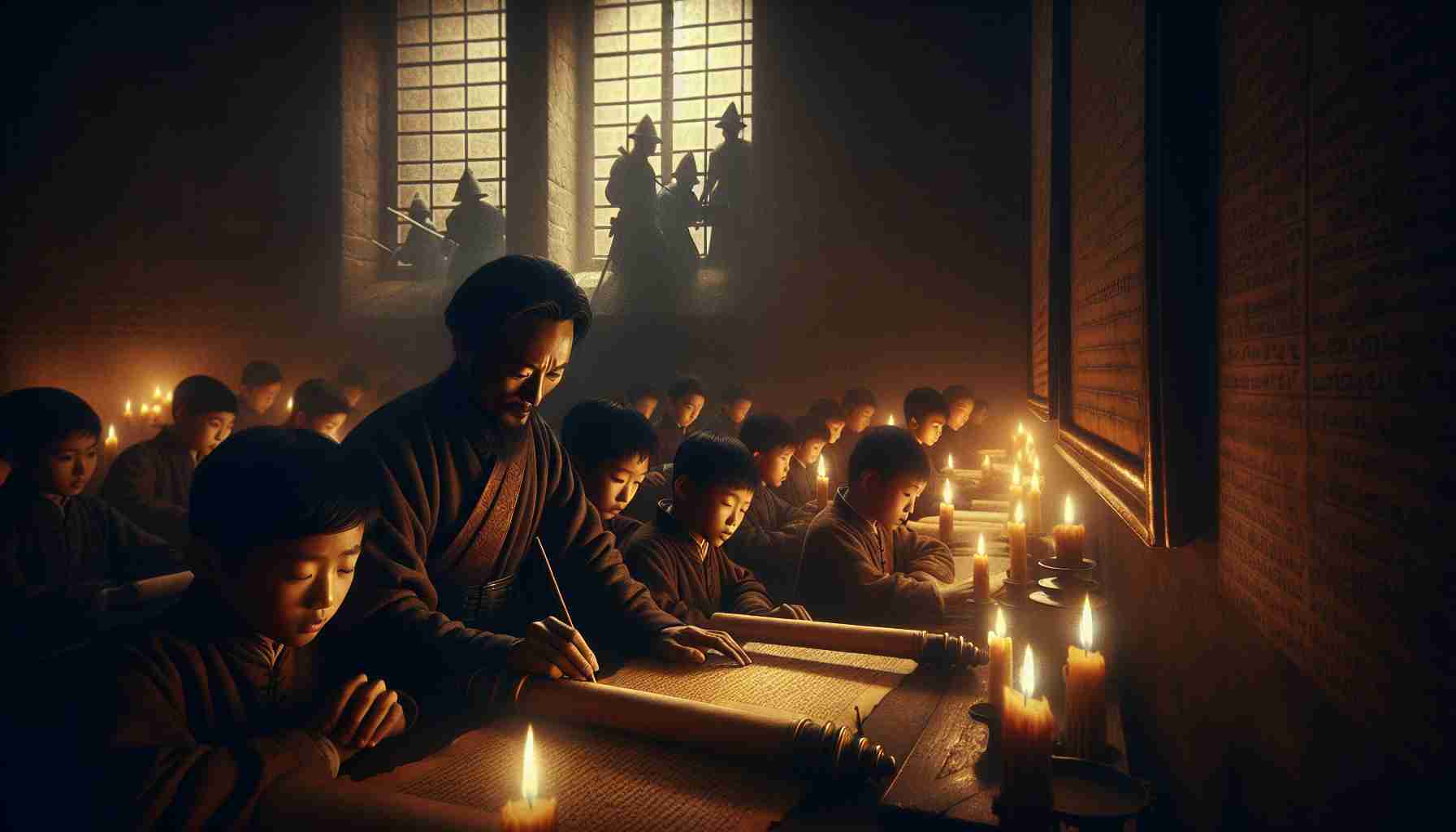

I wasn’t anyone important. Just a dyer’s apprentice in the small town of Lod, scrubbing linen in vats of purple and blue. But I will never forget the day my teacher—Rabbi Hananiah—chose to die with God’s Name on his lips.
The Romans had banned Torah study. "Their words or your blood," the soldiers shouted when they seized anyone caught teaching. But Rabbi Hananiah didn’t stop. Every morning, we met in the back room of his home, just a few eager boys and a man whose voice held the weight of the world. "God commanded us," he would say, nodding toward the Torah scroll hidden in his satchel, "and I will not forget His name."
Then came the arrest. They took him at dawn. Someone must have betrayed us. We heard the shouting, the knocking down of his door, the stomping of sandals. I ran to hide under the woodpile behind the house. From there, I saw them drag him through the street in shackles.
Three days later they made the execution public. “Let the rebels see,” one soldier sneered. I went, even though my mother begged me not to. My legs moved on their own. He had taught me the Shema—“Hear, O Israel: the Lord our God, the Lord is One”—and I needed to hear it from him just once more.
They wrapped him in the Torah scroll and lit it beneath him. I couldn’t breathe. The fire cracked and surged. Some laughed. Others wept. But Rabbi Hananiah, through the flames, looked toward Heaven and began reciting the Shema.
“Shema Yisrael…Adonai Eloheinu…”
His voice didn’t tremble. It was strong. Clear. Above the fire and the shouts, I heard every syllable. And so did the others. Even the Roman guards stopped and stared. One of them, a young centurion, asked, “Old man, are you not in pain?”
Rabbi Hananiah whispered, “The parchment burns, but the letters fly upward.”
A silence fell over the crowd. I clenched my fists through tears. That moment changed me.
I had always thought honoring God meant keeping commandments in quiet ways, like lighting candles or saying blessings. But that day, I saw a man give up everything—to proclaim God's name in defiance of earthly power. That, I learned, is called Kiddush Hashem—sanctifying God's name, even to the point of death.
Rabbi Hananiah died there, wrapped in the holy words he loved. But his voice didn’t die with him. It’s in my heart now, rising every time I say the Shema. I left Lod that week, afraid they’d come for us next. But I took his teachings with me. I still crouch over the dye vats by day, but by night I teach Torah to five boys in a different town—just as he did for us.
They may threaten us again. But now I understand what he did. And if the day ever comes…may I have the strength to speak those same words, with God's name on my lips.
I wasn’t anyone important. Just a dyer’s apprentice in the small town of Lod, scrubbing linen in vats of purple and blue. But I will never forget the day my teacher—Rabbi Hananiah—chose to die with God’s Name on his lips.
The Romans had banned Torah study. "Their words or your blood," the soldiers shouted when they seized anyone caught teaching. But Rabbi Hananiah didn’t stop. Every morning, we met in the back room of his home, just a few eager boys and a man whose voice held the weight of the world. "God commanded us," he would say, nodding toward the Torah scroll hidden in his satchel, "and I will not forget His name."
Then came the arrest. They took him at dawn. Someone must have betrayed us. We heard the shouting, the knocking down of his door, the stomping of sandals. I ran to hide under the woodpile behind the house. From there, I saw them drag him through the street in shackles.
Three days later they made the execution public. “Let the rebels see,” one soldier sneered. I went, even though my mother begged me not to. My legs moved on their own. He had taught me the Shema—“Hear, O Israel: the Lord our God, the Lord is One”—and I needed to hear it from him just once more.
They wrapped him in the Torah scroll and lit it beneath him. I couldn’t breathe. The fire cracked and surged. Some laughed. Others wept. But Rabbi Hananiah, through the flames, looked toward Heaven and began reciting the Shema.
“Shema Yisrael…Adonai Eloheinu…”
His voice didn’t tremble. It was strong. Clear. Above the fire and the shouts, I heard every syllable. And so did the others. Even the Roman guards stopped and stared. One of them, a young centurion, asked, “Old man, are you not in pain?”
Rabbi Hananiah whispered, “The parchment burns, but the letters fly upward.”
A silence fell over the crowd. I clenched my fists through tears. That moment changed me.
I had always thought honoring God meant keeping commandments in quiet ways, like lighting candles or saying blessings. But that day, I saw a man give up everything—to proclaim God's name in defiance of earthly power. That, I learned, is called Kiddush Hashem—sanctifying God's name, even to the point of death.
Rabbi Hananiah died there, wrapped in the holy words he loved. But his voice didn’t die with him. It’s in my heart now, rising every time I say the Shema. I left Lod that week, afraid they’d come for us next. But I took his teachings with me. I still crouch over the dye vats by day, but by night I teach Torah to five boys in a different town—just as he did for us.
They may threaten us again. But now I understand what he did. And if the day ever comes…may I have the strength to speak those same words, with God's name on my lips.